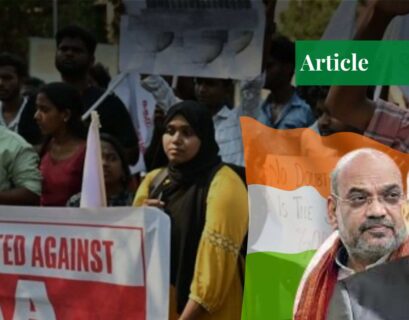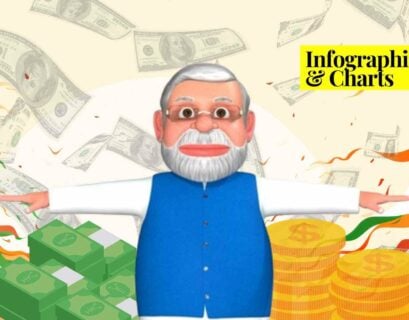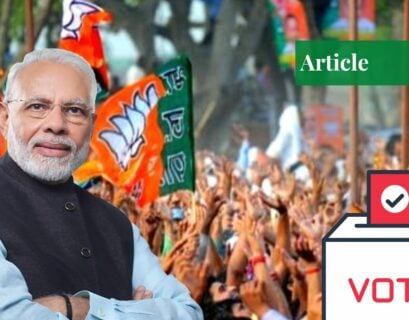Hafsa Ammar is a graduate of the National Defence University, Islamabad. Her areas of expertise are narrative building and propaganda warfare, centered around the Soviet Union and modern-day Russia.
Uniform Civil Code (UCC)
India claims that it is a pluralist state, a nation that accepts and celebrates diversity within both social and political spheres, be it ethnic or religious distinctions. This is represented in its judicial system as various religious communes of India are governed by their own ‘personal’ rules and regulations, but Modi wants to bring this inclusive chapter of Indian judicial history to a close through the Uniform Civil Code (UCC).
The UCC would replace the laws currently in place and would apply to all individuals regardless of gender, caste, ethnicity, or religion. It would be a one-for-all principle being applied to a population of 1.4 billion.
Favor and Opposition
Many scholars such as Ramchandra Guha, an intellectual who has published many books surrounding the political landscape of India before and after Gandhi, are in favor of the Uniform Civil Code. The reasoning given for the UCC is hinged majorly on ‘equality and women’s rights’. However, this opinion does leave a bad aftertaste because it implies, not so subtly, that the personal laws erected by various religious institutions are somehow harmful to the people, propagating cultural and structural violence.
It is a given that the UCC when formulated by the Bharatiya Janata Party (BJP) will inevitably hold a Hindu characteristic in its core. This would be fundamentally problematic for other religious communities, especially Muslims as they have a history of being targeted. This is not a new proposal; the BJP has been carrying a torch for the UCC for a long time.
In the 2014 election manifesto, the BJP government vowed under ‘Protecting Culture and Heritage’ that cows and their offspring would be protected, construction of the Ram Temple situated in Ayodhya would be prioritized, and that the Uniform Civil Code would “…draw upon the best traditions…” and mold them to contemporary times. How are Muslims of India to believe that their rights would be protected and upheld by a government that has antagonized them time and again over the decades?
Many incidents show anti-Muslim sentiments by the BJP including but not limited to the Citizenship Amendment Act of 2019 and the multiple occasions where BJP members have gone on record using derogatory terms for and against Muslims such as Yogi Adityanath. There is no shortage of these events which makes Muslim constituents of India afraid of this newfound enthusiasm for the Uniform Civil Code campaign.

It is not that a UCC has not been practiced in various states around the world, but there is a common factor of consent by all in those situations. In the Indian Constitution (as of May 2022), Article 44 states: Uniform Civil Code for the citizens—The State shall endeavor to secure for the citizens a uniform civil code throughout the territory of India.
The above means that a UCC can be implemented and the state will work towards the existence of one, but only with the consultation, care, and representation of all parties involved. A civil code formulated in the haste of upcoming elections as this one would have a devastating impact on the diverse society that is already fraught with conflict daily – hijab ban riots, love jihad killings, and more are mere examples of this bubbling pot overflowing.
Apart from the violence that would ensue, this would go against Nehru and his stance on the significance of secularism in India. In the historic Karachi Resolution written by Nehru in 1931, there was a focus on human rights, as evidenced in the following articles:
(2) Every citizen shall enjoy the freedom of conscience and the right freely to profess and practice his religion, subject to public order and morality.
(3) The culture, language, and script of the minorities and the different linguistic areas shall be protected.
Shah Bano Case
How would the culture of minorities be protected when it is the very concept being attacked by the UCC? The infamous Shah Bano case is quoted by both sides of the common code argument as it saw the clash between religious rules and state legislation.
Mohd. Ahmed Khan v. Shah Bano Begum was a triple talaq landmark case. The crux of it was that Mohammed Ahmed divorced Shah Bano and evicted her from his home while he remarried another. Bano, a mother of five children filed an appeal under Section 125 of the Indian Criminal Code which states that a man is obligated to the maintenance of his wife and children if he has sufficient means to do so.
Ahmed Khan’s defense was that under Islamic injunctions he had divorced his wife (triple talaq) and was no longer under any legal, religious, or contractual obligation to care for her. Just this one case showcased how strikingly different the various communities present within India work, and that a UCC if drafted without the proper care and civil consultancy would only lead to more conflict.
Modi claims that for the smooth working of a state, there needs to be inherent equality in the justice doled out to all households. While this statement subjectively seems to be humanitarian, it is rather ignorant. Sanjay Kumar, a Delhi-based journalist deduced that the message being propagated by the BJP currently is that through the UCC they will keep the rights of the majority protected – the majority being Hindus. It is just another political ploy to polarize Indian citizens against each other and guarantee votes in the upcoming elections.
If you want to submit your articles, research papers, and book reviews, please check the Submissions page.
The views and opinions expressed in this article/paper are the author’s own and do not necessarily reflect the editorial position of Paradigm Shift.


















